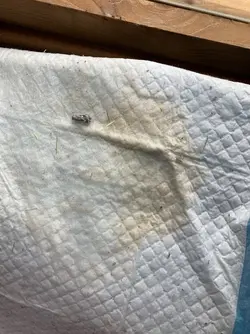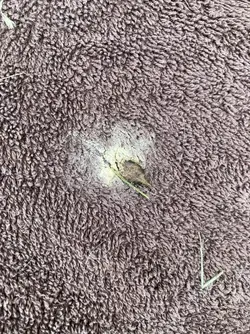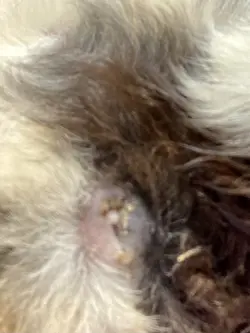Diane H
Junior Guinea Pig
Evening all. My lovely female rescue Izzy had a suspected UTI in Feb which cleared up nicely with antibiotics. However, recently the wet back end reoccurred so we saw the vet straight away. She seemed to be recovering well on Batryl but then I noticed wetness again and a new symptom - not running away from me (she is usually v fast!). So we we’ve been back at the vets who noticed that her her bladder felt a little thick (bladder stone suspected). She underwent an x ray this week (no stone was seen) and is now on antibiotics (0.5 ml twice a day) and and cat metacam (0.5 ml once a day). She’s come round from the x ray OK but I’ve noticed this evening a larger white deposit on a towel I put down and some brown around her under carriage. I haven’t seen any blood, just a brownish stain on a puppy pad which could just be wee oxidising I guess. The vet plans to try get a sample of urine to culture but any advice from some guinea experts as to the best course of action would be appreciated. Thanks in advance.




